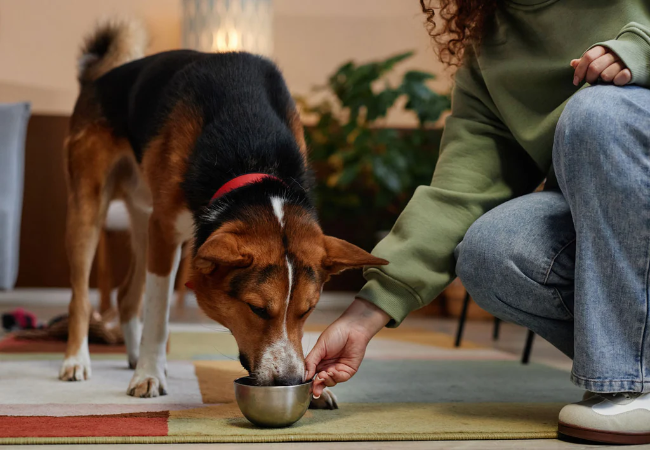6 Vet Approved Ways to Go Natural with Your Pet in 2025 🐶🐱

In this article
6 Vet Approved Ways to Go Natural with Your Pet in 2025 🐶🐱
By Dr. Duncan Houston BVSc
Transitioning to a natural lifestyle for your pet can lead to improved health, reduced exposure to harmful chemicals, and a stronger bond between you and your furry companion. 🐾 Let's explore six vet-approved strategies to help your pet thrive naturally in 2025. 🧠
1. 🥩 Opt for Natural Pet Food
Nutrition is the cornerstone of your pet's health. When selecting pet food:
- Check Ingredients: Ensure that at least two named meats or meat meals are among the top ingredients in dry food. For other forms like canned or raw, a named meat should be the first ingredient.
- Avoid Harmful Additives: Steer clear of synthetic chemical preservatives such as ethoxyquin, BHT, BHA, propyl gallate, and propylene glycol.
- Choose All-Life-Stage Foods: Foods labeled for all life stages often emphasize natural ingredients and balanced nutrition.
- Consider Raw or Dehydrated Diets: These options are less processed and can offer more natural nutrition.
For cats, a high-protein, high-moisture diet is crucial to maintain optimal kidney and bladder health and to prevent obesity-related diseases. Always transition diets gradually to minimize digestive issues.
2. 🧼 Use Natural Grooming Products
Many pet grooming products contain perfumes, detergents, and other potentially harmful chemicals. These substances can be absorbed through the skin, putting a strain on the liver. Opt for grooming products that use mild, natural ingredients, including safe herbs, which are gentler on the skin and less likely to be absorbed and accumulated in the body.
3. 💊 Choose Natural Supplements and Vitamins
Natural vitamins derived from whole foods are better absorbed and utilized by the body compared to synthetic ones. Synthetic vitamins, made in laboratories, are less efficient and may even be harmful. Always consult with your veterinarian before introducing new supplements to ensure they meet your pet's specific needs.
4. 🐜 Implement Natural Flea and Tick Control
Every registered chemical flea and tick product has been documented to cause adverse reactions in some pets. Natural flea and tick control methods require vigilance and dedication:
- Diet: A healthy diet can make your pet less susceptible to parasites.
- Supplements: B vitamins, garlic, and yeast are reportedly aversive to fleas and ticks.
- Flea Combs: Use frequently to monitor and remove fleas.
- Natural Shampoos: Frequent bathing with natural flea-repellent shampoos may be needed in heavy infestations.
- Home and Yard: Use diatomaceous earth, borax, and beneficial nematodes in the yard, and vacuum frequently in the house and car to remove flea eggs.
Always consult with your veterinarian before making changes to your pet's flea and tick prevention regimen.
5. 🍖 Select Natural Treats and Chews
Many treats, especially jerky treats made in China, have been implicated in illness and death in pets. Opt for freeze-dried or dehydrated meats and organs (such as liver or lung) that contain no additives or chemicals and have not undergone harsh processing. Simple, natural treats are the best choice for your pet's health.
6. 🐾 Choose Natural Cat Litter
Clay-based litters are mined in environmentally unfriendly processes and create dust that can cause respiratory issues in cats. Consider alternative litter made from natural materials like recycled paper, wood, or corn. However, the most important factor is using a litter that your cat likes and is easy to keep clean, as a dirty box is the number one reason for litter box avoidance.
📱 Enhance Your Pet's Natural Lifestyle with Trusted Resources
For additional support and personalized guidance, consider these resources:
- Ask A Vet: Connect with veterinary professionals for expert advice. 🩺
Empower your journey as a pet parent by downloading the Ask A Vet app today and ensure your furry friend thrives naturally in 2025 and beyond! 📲🐾






